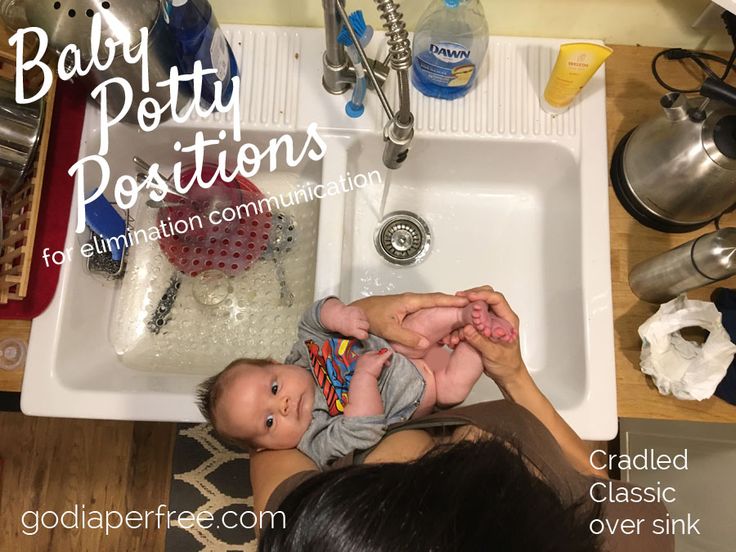Support in pregnancy
Pregnancy support - fathers, partners and carers
Supporting someone through pregnancy, labour and newborn baby care is an important job. Whether you are the baby’s father, the pregnant woman’s partner or are supporting a single mother-to-be, you have a crucial role in ensuring she gets the support she needs during this life-changing time.
Pregnancy can be an emotional rollercoaster, and for some women, it can feel like the longest nine months of their lives. Caring for a newborn baby can be exhausting and take its toll on relationships. Helping to meet the new mum’s physical and mental health needs is important for the health of the woman, the newborn baby and your relationship.
Providing support during pregnancy
Every woman’s experience of pregnancy is different. Some feel well the whole way through; other women experience morning sickness right up until the time they give birth. Some women even need to be hospitalised if a condition such as pre-eclampsia (high blood pressure) becomes severe.
Morning sickness
Morning sickness is the most common health complaint for pregnant women. It usually begins around the fourth week of pregnancy and settles by the 12th to 14th week. Some women continue to have morning sickness symptoms into their second trimester, and a small percentage experience nausea and vomiting for the entire duration of their pregnancy.
Despite its name, morning sickness is not always restricted to the morning. It can strike at any point during the day or night and symptoms of morning sickness include nausea and vomiting. You can support your partner by:
- preparing meals – cooking smells can make nausea worse
- encouraging her to snack on a few dry crackers or plain sweet biscuits before she gets out of bed or throughout the day as hunger can intensify morning sickness symptoms
- encouraging her to drink as much as possible (water, diluted fruit juice, weak tea, ginger tea, clear soup, beef extract drinks or sucking on ice cubes can help)
- taking on more household chores so she can rest.

Emotional health
Be mindful of how fluctuating hormones can bring on mood swings. Your partner might get teary from time to time or might become frustrated with being pregnant, especially if she feels unwell.
Tiredness can also cause irritability. As your partner gets further along in her pregnancy sleeping is likely to become more and more uncomfortable. The baby’s weight can put pressure on her spine, back muscles, intestines, bladder and major blood vessels, leading to decreased circulation, pain and a frequent need to urinate. This can make it difficult to sleep. Getting your partner a full body pillow, giving her backrubs and brewing soothing teas can all help.
After the birth, the ‘baby blues’ can set in due to significant hormonal changes. In most cases this passes within a few days, but if it develops into postnatal depression, it is important that your partner talks about it – if not with you, with a professional. She can start by speaking with her general practitioner (GP) or her maternal and child health nurse or by phoning the PANDA (Perinatal Anxiety and Depression Australia) helpline on 1300 726 306 (Monday to Friday, 10 am to 5 pm AEST).
Preparing for childbirth
Reading books on pregnancy and newborns, and attending antenatal classes with your partner are good ways to help you prepare for the baby’s arrival. Go to pregnancy appointments if you can, especially the more important ones such as scans, so you can understand first-hand how the pregnancy is progressing.
Think ahead about practical issues such as whether you want to cut the umbilical cord, or if you want to take photos.
When your partner is in labour, help her settle in at the hospital, labour ward, birthing centre or wherever she is having the baby. Make sure she is comfortable and ask about her needs – this might be a hand to hold (or squeeze!), a sip of water or just words of encouragement.
Adjusting to parenthood
After the baby comes, life in your household will change. It is important to look after your baby, yourself and your relationship during this often emotional time.
Get involved with your newborn baby and their care. Help with settling, bathing, changing and playing. Persist with these things even if the baby seems to prefer their mum. Resist the urge to hand the baby back every time the baby gets demanding. Only by doing will you build your confidence and skills.
Help with settling, bathing, changing and playing. Persist with these things even if the baby seems to prefer their mum. Resist the urge to hand the baby back every time the baby gets demanding. Only by doing will you build your confidence and skills.
Spending one-on-one time with your newborn baby will help establish a bond and will also give your partner a rest.
Make time for play – talking with your baby, singing, making funny noises or pulling silly faces. All these things help to build the baby’s communication skills from an early age.
There might be things your partner cannot do while she recovers from childbirth, especially if she has had a caesarean. Be mindful of her limitations and help out where you can.
Helping with breastfeeding
Although you cannot provide the milk, there are things you can do to make breastfeeding easier for your partner. This will also allow you to play a more active role in the baby’s care.
Breastfeeding can be difficult for some new mums, so be supportive if your partner is having trouble. She may feel anxious or even in pain while she is feeding. Each feed may take a long time, which may make her feel frustrated. Help out by seeing what needs doing around the house. Knowing she can take her time might help your partner to relax and will make the experience easier.
She may feel anxious or even in pain while she is feeding. Each feed may take a long time, which may make her feel frustrated. Help out by seeing what needs doing around the house. Knowing she can take her time might help your partner to relax and will make the experience easier.
There might be an opportunity for you to feed your baby a bottle of expressed milk. This can be a good way to bond with your baby and to give your partner a rest. This will not suit everyone, however. Some women find expressing milk uncomfortable and even painful. If your partner decides to express, it is a good idea to wait a few weeks so the baby can get used to feeding from the breast before you introduce a bottle.
If you are feeding your baby using infant formula, you will be able to help at any feed.
Bonding with your baby
Many parents bond with their newborns the minute they lay eyes on them, but for other new parents (mothers included) the bonding process can take a bit longer. Do not let this worry you. It will happen in time.
Do not let this worry you. It will happen in time.
Sometimes you might feel your role as a parent has been diminished to ticking tasks off a list – change the baby, sterilise the bottles, take the baby for a walk. Sometimes mothers adapt to their new role by shutting other people out. This might make you feel redundant. You might even feel that you have been replaced in favour of the baby.
However you are feeling, try to be as patient and supportive as you can, although it is important that you let your partner know your concerns.
Looking after your relationship
Once the euphoria of having a newborn baby wears off, parents can become worn down by a constant cycle of caring for their baby and not much time to care for themselves. Lack of sleep and the stress associated with babies who are hard to settle can take its toll.
You will no doubt notice new things about your partner as you see them for the first time as a parent. Different ideas about parenting might become apparent and this too can cause tension, especially when you are both exhausted. Taking the time to talk to each other is the often the best way to handle these issues. If you need more help, there are free support services available.
Taking the time to talk to each other is the often the best way to handle these issues. If you need more help, there are free support services available.
Support services for new parents
If you feel you need some extra support with your parenting role or with your relationship, it is a good idea to talk to someone. You might like to talk to a friend, a GP or another health professional.
Parentline
Parentline Victoria is a free telephone information, counselling and referral service. This parent helpline service (call 13 22 89) is available to parents of children of all ages – from birth to 18 years of age. Parentline operates between 8 am and midnight, seven days a week. Parentline helps with everyday questions and concerns such as:
- resolving family conflict
- discipline issues
- sleeping problems
- improving family relationships.
Maternal and Child Health Service
The Maternal and Child Health Service provides information and advice about child health, child development, maternal health, parenting and home safety for families with children from birth to six years. If you have specific issues you want to discuss, contact the service or raise them at your next appointment with your maternal and child health nurse. If the maternal and child health nurse cannot help, they will be able to refer you to specialised services.
If you have specific issues you want to discuss, contact the service or raise them at your next appointment with your maternal and child health nurse. If the maternal and child health nurse cannot help, they will be able to refer you to specialised services.
Early Parenting Centre
Early Parenting Centres can provide:
- support and help for parents of children from birth to 36 months
- help with common difficulties such as sleeping and feeding problems
- a place for parents and children to stay so they can receive 24-hour support (for up to five days)
- day programs (day-stay) that offer a minimum of four hours support.
To find you nearest parenting service, ask your maternal and child health nurse or use the Health Services Directory on this website.
Where to get help
- Your doctor
- Maternal and child health nurse
Pregnancy support - fathers, partners and carers
Supporting someone through pregnancy, labour and newborn baby care is an important job. Whether you are the baby’s father, the pregnant woman’s partner or are supporting a single mother-to-be, you have a crucial role in ensuring she gets the support she needs during this life-changing time.
Whether you are the baby’s father, the pregnant woman’s partner or are supporting a single mother-to-be, you have a crucial role in ensuring she gets the support she needs during this life-changing time.
Pregnancy can be an emotional rollercoaster, and for some women, it can feel like the longest nine months of their lives. Caring for a newborn baby can be exhausting and take its toll on relationships. Helping to meet the new mum’s physical and mental health needs is important for the health of the woman, the newborn baby and your relationship.
Providing support during pregnancy
Every woman’s experience of pregnancy is different. Some feel well the whole way through; other women experience morning sickness right up until the time they give birth. Some women even need to be hospitalised if a condition such as pre-eclampsia (high blood pressure) becomes severe.
Morning sickness
Morning sickness is the most common health complaint for pregnant women. It usually begins around the fourth week of pregnancy and settles by the 12th to 14th week. Some women continue to have morning sickness symptoms into their second trimester, and a small percentage experience nausea and vomiting for the entire duration of their pregnancy.
Some women continue to have morning sickness symptoms into their second trimester, and a small percentage experience nausea and vomiting for the entire duration of their pregnancy.
Despite its name, morning sickness is not always restricted to the morning. It can strike at any point during the day or night and symptoms of morning sickness include nausea and vomiting. You can support your partner by:
- preparing meals – cooking smells can make nausea worse
- encouraging her to snack on a few dry crackers or plain sweet biscuits before she gets out of bed or throughout the day as hunger can intensify morning sickness symptoms
- encouraging her to drink as much as possible (water, diluted fruit juice, weak tea, ginger tea, clear soup, beef extract drinks or sucking on ice cubes can help)
- taking on more household chores so she can rest.
Emotional health
Be mindful of how fluctuating hormones can bring on mood swings. Your partner might get teary from time to time or might become frustrated with being pregnant, especially if she feels unwell.
Tiredness can also cause irritability. As your partner gets further along in her pregnancy sleeping is likely to become more and more uncomfortable. The baby’s weight can put pressure on her spine, back muscles, intestines, bladder and major blood vessels, leading to decreased circulation, pain and a frequent need to urinate. This can make it difficult to sleep. Getting your partner a full body pillow, giving her backrubs and brewing soothing teas can all help.
After the birth, the ‘baby blues’ can set in due to significant hormonal changes. In most cases this passes within a few days, but if it develops into postnatal depression, it is important that your partner talks about it – if not with you, with a professional. She can start by speaking with her general practitioner (GP) or her maternal and child health nurse or by phoning the PANDA (Perinatal Anxiety and Depression Australia) helpline on 1300 726 306 (Monday to Friday, 10 am to 5 pm AEST).
Preparing for childbirth
Reading books on pregnancy and newborns, and attending antenatal classes with your partner are good ways to help you prepare for the baby’s arrival. Go to pregnancy appointments if you can, especially the more important ones such as scans, so you can understand first-hand how the pregnancy is progressing.
Go to pregnancy appointments if you can, especially the more important ones such as scans, so you can understand first-hand how the pregnancy is progressing.
Think ahead about practical issues such as whether you want to cut the umbilical cord, or if you want to take photos.
When your partner is in labour, help her settle in at the hospital, labour ward, birthing centre or wherever she is having the baby. Make sure she is comfortable and ask about her needs – this might be a hand to hold (or squeeze!), a sip of water or just words of encouragement.
Adjusting to parenthood
After the baby comes, life in your household will change. It is important to look after your baby, yourself and your relationship during this often emotional time.
Get involved with your newborn baby and their care. Help with settling, bathing, changing and playing. Persist with these things even if the baby seems to prefer their mum. Resist the urge to hand the baby back every time the baby gets demanding. Only by doing will you build your confidence and skills.
Only by doing will you build your confidence and skills.
Spending one-on-one time with your newborn baby will help establish a bond and will also give your partner a rest.
Make time for play – talking with your baby, singing, making funny noises or pulling silly faces. All these things help to build the baby’s communication skills from an early age.
There might be things your partner cannot do while she recovers from childbirth, especially if she has had a caesarean. Be mindful of her limitations and help out where you can.
Helping with breastfeeding
Although you cannot provide the milk, there are things you can do to make breastfeeding easier for your partner. This will also allow you to play a more active role in the baby’s care.
Breastfeeding can be difficult for some new mums, so be supportive if your partner is having trouble. She may feel anxious or even in pain while she is feeding. Each feed may take a long time, which may make her feel frustrated. Help out by seeing what needs doing around the house. Knowing she can take her time might help your partner to relax and will make the experience easier.
Help out by seeing what needs doing around the house. Knowing she can take her time might help your partner to relax and will make the experience easier.
There might be an opportunity for you to feed your baby a bottle of expressed milk. This can be a good way to bond with your baby and to give your partner a rest. This will not suit everyone, however. Some women find expressing milk uncomfortable and even painful. If your partner decides to express, it is a good idea to wait a few weeks so the baby can get used to feeding from the breast before you introduce a bottle.
If you are feeding your baby using infant formula, you will be able to help at any feed.
Bonding with your baby
Many parents bond with their newborns the minute they lay eyes on them, but for other new parents (mothers included) the bonding process can take a bit longer. Do not let this worry you. It will happen in time.
Sometimes you might feel your role as a parent has been diminished to ticking tasks off a list – change the baby, sterilise the bottles, take the baby for a walk. Sometimes mothers adapt to their new role by shutting other people out. This might make you feel redundant. You might even feel that you have been replaced in favour of the baby.
Sometimes mothers adapt to their new role by shutting other people out. This might make you feel redundant. You might even feel that you have been replaced in favour of the baby.
However you are feeling, try to be as patient and supportive as you can, although it is important that you let your partner know your concerns.
Looking after your relationship
Once the euphoria of having a newborn baby wears off, parents can become worn down by a constant cycle of caring for their baby and not much time to care for themselves. Lack of sleep and the stress associated with babies who are hard to settle can take its toll.
You will no doubt notice new things about your partner as you see them for the first time as a parent. Different ideas about parenting might become apparent and this too can cause tension, especially when you are both exhausted. Taking the time to talk to each other is the often the best way to handle these issues. If you need more help, there are free support services available.
Support services for new parents
If you feel you need some extra support with your parenting role or with your relationship, it is a good idea to talk to someone. You might like to talk to a friend, a GP or another health professional.
Parentline
Parentline Victoria is a free telephone information, counselling and referral service. This parent helpline service (call 13 22 89) is available to parents of children of all ages – from birth to 18 years of age. Parentline operates between 8 am and midnight, seven days a week. Parentline helps with everyday questions and concerns such as:
- resolving family conflict
- discipline issues
- sleeping problems
- improving family relationships.
Maternal and Child Health Service
The Maternal and Child Health Service provides information and advice about child health, child development, maternal health, parenting and home safety for families with children from birth to six years. If you have specific issues you want to discuss, contact the service or raise them at your next appointment with your maternal and child health nurse. If the maternal and child health nurse cannot help, they will be able to refer you to specialised services.
If you have specific issues you want to discuss, contact the service or raise them at your next appointment with your maternal and child health nurse. If the maternal and child health nurse cannot help, they will be able to refer you to specialised services.
Early Parenting Centre
Early Parenting Centres can provide:
- support and help for parents of children from birth to 36 months
- help with common difficulties such as sleeping and feeding problems
- a place for parents and children to stay so they can receive 24-hour support (for up to five days)
- day programs (day-stay) that offer a minimum of four hours support.
To find you nearest parenting service, ask your maternal and child health nurse or use the Health Services Directory on this website.
Where to get help
- Your doctor
- Maternal and child health nurse
Psycho-emotional support during pregnancy
Clinic of Gynecology and Oncogynecology
Moscow, st. Shchepkina, 35
Shchepkina, 35
Moscow, Spiridonievsky per., 5/1
Moscow, st. Pravdy, 15 building 1
Write to WhatsApp
January 11, 2017
Loginova Olga
Obstetrician-gynecologist, Ph.D.
Pregnancy is generally assessed as a prosperous emotional period for the woman and the family as a whole. At the same time, in some women, the period of pregnancy and the state of motherhood increase the risk of developing or progressing mental disorders. Numerous studies have shown that pregnancy does not protect against the development of severe depression or the worsening of existing problems. Women who stop treatment on their own or reduce drug dosages are at high risk. Women are twice as likely to be depressed as men. Not surprisingly, depression is one of the most common medical complications during pregnancy and the postpartum period.
Postpartum depression
Risk factors for depression in pregnancy:
-
daily stresses, including adverse events,
-
lack of social support,
-
domestic violence,
-
history of depression in previous pregnancies,
-
maternal anxiety,
-
unwanted pregnancy,
-
ambivalence towards pregnancy,
-
low income,
-
low level of education,
-
smoking,
-
absence of spouse/partner (single mother),
-
a history of postpartum depression and dose reduction or self-refusal to take antidepressants.
Potential complications of depression during pregnancy
Mother
-
Difficulties in childcare.
-
Smoking, alcohol or other drug abuse.

-
Decreased appetite and low body weight.
-
Sleep disorders.
-
Alarm.
-
Aggravation of depression.
-
Suicidal thoughts or attempts.
-
Not breastfeeding.
-
Disruption of communication mother-newborn.
-
Postpartum depression.
Effect of depression on fetal development - possible negative effects:
-
teratogenic effect,
-
spontaneous miscarriages,
-
preeclampsia,
-
intrauterine growth retardation,
-
premature birth,
-
low birth weight.
During pregnancy, many women experience increased levels of anxiety and emotional lability. In the first 3 months after childbirth, the risk of a mental disorder increases several times. Depression occurs in 80% of cases. Most mental disorders occur in women of childbearing age, in connection with this, pregnancy often occurs while taking psychotropic drugs. Abrupt withdrawal of psychotropic drugs often leads to relapse of psychiatric illness - a careful assessment of the risks and benefits to mother and fetus of medication and relapse of psychiatric disorder should be carried out. In women of childbearing age and pregnant women, psychotropic drugs that are as safe as possible for the fetus should be used. In some cases of mild to moderate anxiety and depressive disorders, cognitive behavioral therapy is the first choice.
Depression occurs in 80% of cases. Most mental disorders occur in women of childbearing age, in connection with this, pregnancy often occurs while taking psychotropic drugs. Abrupt withdrawal of psychotropic drugs often leads to relapse of psychiatric illness - a careful assessment of the risks and benefits to mother and fetus of medication and relapse of psychiatric disorder should be carried out. In women of childbearing age and pregnant women, psychotropic drugs that are as safe as possible for the fetus should be used. In some cases of mild to moderate anxiety and depressive disorders, cognitive behavioral therapy is the first choice.
Principles of therapy
-
Involving prospective parents in decision making.
-
Use of the lowest effective doses.
-
Use of the safest preparations.
-
Do not administer multiple drugs at the same time.
-
Adjust dose during pregnancy.

-
Provide adequate screening for fetal development.
-
Inform obstetricians and gynecologists about possible changes in mental status.
-
Assess the development of withdrawal syndrome in a newborn.
Breastfeeding and drug therapy
-
All psychotropic drugs pass into breast milk. The concentration depends on the psychopharmacological properties of the drug.
-
Since most psychotropic drugs are metabolized by the liver, and in newborns up to 2-3 months. insufficiency of liver enzymes, then premature babies and newborns have an increased risk of toxic effects.
-
The concentration of antidepressants and tranquilizers in mother's milk is quite low, especially when using low doses. When planning a temporary breastfeeding regimen, it is possible to minimize the ingestion of the child, but it is impossible to exclude the toxic effect.

-
The concentration of normotimics (lamotrigine, carbamazepine, lithium preparations, valproic acid) in breast milk is very high (20-50% of the mother's serum concentration).
Psychotherapeutic methods
-
Cognitive behavioral therapy.
-
Interpersonal psychotherapy.
-
Supportive psychotherapy.
-
Family counseling.
At the European Medical Center, all pregnant women in need of psychological support are accompanied by qualified obstetrician-gynecologists together with psychiatrists.
As part of the EMC School of Moms, you can ask any questions that concern you to our psychiatrists.
Rate
Average: 3.50 (2 ratings)
Clinic of Gynecology and Oncogynecology
Moscow, st. Shchepkina, 35
Moscow, Spiridonievsky per. , 5/1
, 5/1
Moscow, st. Pravdy, 15 building 1
Write to WhatsApp
Doctors and staff
IMPORTANT PREGNANCY QUESTIONS | About vitamins, nutrition, shoes, etc...
October 28
All videos
Clinic of Gynecology and Oncogynecology
Dear Vladimir Borisovich! Thank you from the bottom of my heart. You are truly a doctor from God with a capital letter. Thanks to your professionalism, kindness, tact, charm and talent, I believed in the success of the upcoming operation immediately at the first meeting at your appointment, you explained everything so intelligibly and convincingly that there was complete confidence in success. The operation you have done is fantastic! The very next day it was possible to sit, get up and groom, and on the third day I was discharged home. Just great. A month later, I completely forgot about the problems that I had before the operation. Once again, many thanks to you and your team, God bless you with health, well-being and success. You are a miracle doctor!!! Best regards, Antonina
Antonina, Moscow
All reviews
Borderline ovarian tumors
October 28, 2022
All stories
We are asked
Are there devices in your clinic that allow you to see the real state of the liver
10/17/2019
What is PET-CT and SPECT-CT?
02/12/2016
Is insulin addictive?
12/30/2020
Read all
A pregnant wife: instructions for her husband
During pregnancy, new processes begin to occur in a woman's body, often incomprehensible to both spouses.
Emotions, appetite, dizziness, changes in bodily sensations... Of course, all this affects relationships in the family. Husbands experience extreme stress and often do not know what to do - as if their wife had been replaced.
Of course, much in a relationship during pregnancy depends on how desirable the unborn child is. And on how the couple knows how to express their love for each other.
Communication with a pregnant wife requires special understanding, patience, and knowledge of the situation. To facilitate communication, we offer the husband some tips to help him get through this difficult period without loss.
Try to understand what cannot be experienced by yourself
It is not physically possible for a man to feel what is happening to a woman. Talk to your wife about things that she feels are bothering her. This will allow you to understand it better. Yes, you do not feel the same, but you are actively involved, you are there. You are one hundred percent in the process. A man can simply sympathize and provide comfort. Knowing that a husband is worried about his wife is very important. This will give her strength and calmness.
A man can simply sympathize and provide comfort. Knowing that a husband is worried about his wife is very important. This will give her strength and calmness.
Take on more household chores
Listen to your wife's wishes. Any. Household or even requests for small things. Take out the trash, hang up laundry after washing, take over the washing of dishes or finally install a dishwasher. Any help is important, this is a real manifestation of care and love. Even if you were brought up with the understanding that there are “male” and “female” jobs in the house, you will have to break the stereotype. Take into account that such times are already in the past, when women did not work, but took care of the house. In a modern society, where both men and women work equally, it is also customary to share responsibilities, and even more so in such a difficult period for a woman.
Take care of your wife and fulfill all her "whims"
It may seem to you that your wife has turned into a terrible shrew and asks for the impossible. This is not so, in the body of a woman during this period, hormones made a real mess, hence the strange behavior, habits, requests. Believe me, your wife does not mock you. And if she wanted peaches in the middle of the night in winter, then run headlong through all the supermarkets in search of what she wants. All the same, she will not let you fall asleep and will throw a tantrum. Because it is very important for her, no matter how strange her request may seem to you. It is likely that she herself will then be surprised by her behavior.
This is not so, in the body of a woman during this period, hormones made a real mess, hence the strange behavior, habits, requests. Believe me, your wife does not mock you. And if she wanted peaches in the middle of the night in winter, then run headlong through all the supermarkets in search of what she wants. All the same, she will not let you fall asleep and will throw a tantrum. Because it is very important for her, no matter how strange her request may seem to you. It is likely that she herself will then be surprised by her behavior.
If she asks you not to wear cologne, hide it away. Does she no longer like your beard? Shave without regrets. If she does not want intimacy, then she will have to put up with it. Not always women experience pleasant sensations from sex during pregnancy. Do not rush her, be affectionate and gentle and she herself will seduce you if she wants to.
A woman's legs get very tired during pregnancy. Still, the weight is growing, the blood vessels of the legs are compressed under the weight of the fetus, and the ankles are also swollen. Give her a foot massage with lavender and peppermint oils before bed. This will relieve tension before going to bed and relax a woman. Your wife will be grateful to you. Offer to help with everything, even if you need to shampoo and blow dry your hair.
Give her a foot massage with lavender and peppermint oils before bed. This will relieve tension before going to bed and relax a woman. Your wife will be grateful to you. Offer to help with everything, even if you need to shampoo and blow dry your hair.
Trust your wife and don't give too much advice
Often men give advice to their wife that they once heard from their mother. When showing concern about the state of pregnancy, it is important for a husband to use any information in moderation. Even doctor's advice may not always be appropriate. Believe me, a woman feels better what exactly she needs at this particular moment - women's instincts are perfectly developed. And the information from your mother may no longer be relevant, even worse, it will irritate your wife. It is better to read the popular modern literature on this topic yourself and invite her to discuss the book together.
"Filter" the environment and external information
Try to protect your wife from negativity during this period. These can be people who are unpleasant to her (even from among relatives), violent films and programs, discussions of unsuccessful pregnancy and childbirth on Internet forums.
These can be people who are unpleasant to her (even from among relatives), violent films and programs, discussions of unsuccessful pregnancy and childbirth on Internet forums.
A woman is too receptive at this time and can think up a lot of unnecessary things, and people unpleasant to her will cause her stress. Better bring her more good videos about children, animals and happy love. Come up with reasons for her why she can't go to the birthday party of a cousin she can't stand
cannot.
A woman is now like a fragile vase, fill it only with soft toys and sweets and make sure that needles do not accidentally fall into it.
Maintain love, make efforts
After a certain period of time - usually from a year to three - the feeling of love sharply declines. Even the wife's pregnancy does not save. Therefore, a man's initiative is needed. Support love with your actions. It is important to understand that it depends on you whether the love fire will be maintained or whether it will die out.












